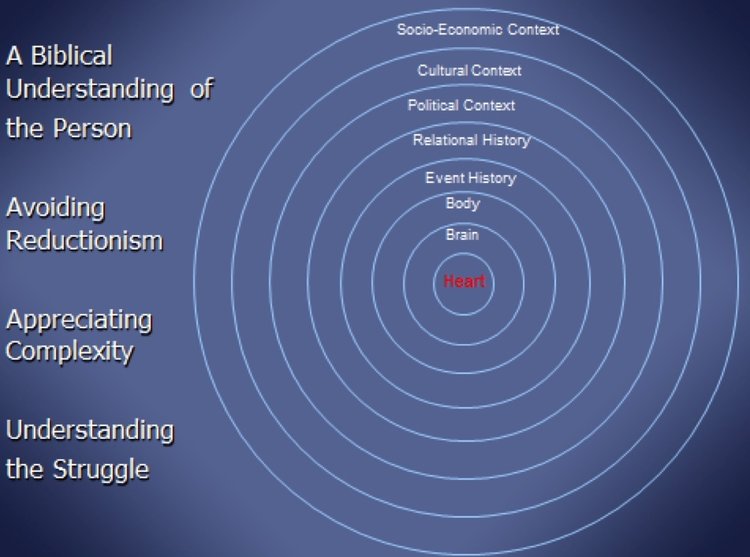Do Your Responses to Your Circumstances Matter?
/As we continue down this path of change, it is now that we must pay attention to the ways we react to our circumstances. In this chapter of Unstuck: A Nine-Step Journey to Change that Lasts, we take our first pivot inward in a “critical” way. But before we do, remember where we have traveled so far.
Step 1: You are in Christ and secure in His love.
Step 2: The Holy Spirit is already at work in you.
Step 3: Change will happen along the contours of your personality and emotional life.
Step 4: You have given careful and appropriate attention to your shaping influences.
Now, as you stand at the junction, how will you respond to your circumstances? This step is critical to understanding where you are growing as well as where you need to grow! As we saw in step 2, the Spirit is presently at work in you so you will see responses that are pleasing to God and helpful to others. But you will also see areas where change needs to happen. So, how do you know what to look for? What are good responses and what are responses that indicate change needs to happen? There are many places in Scripture to find answers to these questions. The 10 commandments is one place. The one I choose to highlight in my book is the Fruit of the Spirit in Galatians 5:19-25.
Gauge Your Reactions
Unwise Responses: Life According to the Sinful Nature
The acts of the [sinful nature] are obvious: sexual immorality, impurity, and debauchery; idolatry and witchcraft; hatred, discord, jealousy, fits of rage, selfish ambition, dissensions, factions and envy; drunkenness, orgies and the like. I warn you, as I did before, that those who live like this will not inherit the kingdom of God. (v 19-21)
• False worship. “Idolatry and witchcraft”: This includes any form of worship that is not directed towards the Christian God; Father, Son and Spirit. We are prone to worship (essentially, “give worth to”) many other things instead—from our relationships to our reputation. Notice that false worship leads to a host of behaviors that are ungodly.
• A lack of self-control over bodily pleasures like sex, food and drink. “Sexual immorality, impurity and debauchery … drunkenness, orgies, and the like”: This includes any sexual activity between unmarried people (real or imagined), unnatural sexual practices and relationships, and uncontrolled sexuality.
• Destructive attitudes: “Hatred … jealousy… selfish ambition … envy.”.
• Destructive results of destructive attitudes with others: “Discord … fits of rage … dissensions, factions.”
Paul says that anyone who practices these things without any repentance is not a Christian—they “will not inherit the kingdom of God” (v 21). But remember, this list is being written to a group of believers. That must mean that Christians can be tempted to live in these ways. Because we are not made completely perfect when we become Christians, we will see ongoing warfare and struggle in these areas; and in some areas more than others, due to the life-shaping experiences that we discussed in chapter 4. One Christian may be more prone to struggle in the area of sexual purity, while another may be more prone to struggle with an attitude of envy.
Nonetheless, this first list highlights those things that are contrary to change.
Wise Responses: Life According to the Spirit
In the next list, Paul shows us the character qualities that should be developing in us as a consequence of our new relationship with God:
But the fruit of the Spirit is love, joy, peace, patience, kindness, goodness, faithfulness, gentleness and self-control. Against such things there is no law. Those who belong to Christ Jesus have crucified the sinful nature with its passions and desires. Since we live by the Spirit, let us keep in step with the Spirit.
Paul lists three sets of three qualities, which encompass all of life; your relationship with God, others and yourself. Notice how they are contrasted to the list of sinful responses listed above.
Your Attitude Toward God: True Worship
Love: for God in light of all he has done for you in Christ.
Joy: a delight in God for who he is, not just for what he has to offer.
Peace: you have peace with God, and confidence and rest in his wisdom and sovereignty.
Your Attitude Towards Others: Love for Others
Forbearance: patience with others when they sin against you or persecute you.
Kindness: a general disposition of humility and encouragement towards others.
Goodness: showing God’s love to others in word and deed.
Your Personal Integrity: Self-Control
Faithfulness: to be utterly reliable and true to your word.
Gentleness: being humble in your own self-assessment rather than self-righteous.
Self-control: expressed in faithfulness and gentleness, rather than being carried along by your impulses.
These two lists could not be any more different! And God desires for every one of his children to grow this fruit, because these godly responses reflect his own character. This is precisely what the Holy Spirit wants to do in your life. Amazing!
And as you look down that list, isn’t that what you want too? Wouldn’t it be wonderful to always live like that? Scripture paints a picture of godly living in order to spur you on to change. You can find similar comparisons between the “old” lifestyle and the “new” lifestyle in passages like Colossians 3 v 5-17, Ephesians 4 v 17-32 and James 3 v 13-18.
You can find more information in chapter 5 of Unstuck: A Nine Step Journey to Change that Lasts










